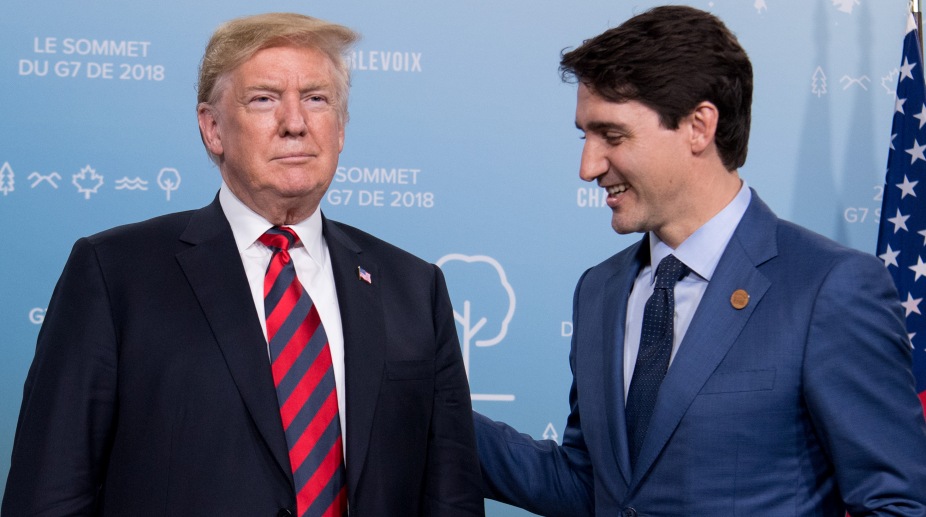Trump issues ‘last warning’ to Hamas as US confirms direct hostage talks
US President Donald Trump has issued what he called a "last warning" to Hamas to release the hostages being held in Gaza.

US President Donald Trump and former Canadian Prime Minister Justin Trudeau (Photo: AFP PHOTO / SAUL LOEB)
What ought to have been a crucial summit on international trade has had an ugly conclusion. The G7 meeting in Charlevoix, Quebec, has failed. And this is quite the most charitable construct that can be placed upon the remarkable fizzle at the high table. More accurately, Donald Trump was at his acerbic worst ~ “We’re like the piggy bank that everybody’s robbing”. In terms of diplomatic courtesies, there was little. Of an effort to address the contentious issues, there was none.
The American President made no effort to compromise on his tariff war. He is said to have arrived late for meetings, chided the other leaders and left early. He virtually binned the final communique. Polite diplomacy lay rather thin on the ground last weekend as he is reported to have tweeted insults to his Canadian hosts from his plane as he headed off to Singapore to keep his date with Kim Jong-un. Notably, his spin on geopolitics may have alienated, if not antagonised, America’s democratic allies. In a word, Mr Trump came through as a reluctant guest of the Canadian Prime Minister, Justin Trudeau.
Advertisement
The US refused to sign the G7 communique. It was rather weak on climate change, but it did deserve the support of the US. Mr Trump’s steel and aluminium tariffs, announced on the eve of the summit, were of riveting interest in Quebec. But the tariffs as well as the forced technology transfers to China remain ever so contentious. In parallel with Trump’s friendship of convenience with Russia, the communique has challenged the Kremlin’s destabilisation tactics, asserted that Iran’s nuclear programme must remain wholly peaceful, and mentioned declarations on gender equality and fair-tax regimes. Mr Trump has not signed any of these provisions. For all the visuals with Angela Merkel and other European leaders, the US President has in the net damaged the trans-Atlantic cohesion between Europe and America. The long-term impact of this rift could be still more damaging.
Advertisement
Quebec has witnessed another bout of what has been debunked as “Trumpian theatrics”. Quite an irony as theoretically at least, the US plays a pivotal role in G7. Arguably, a substantive initiative by the US and Europe would have strengthened the West’s position on the eve of the Trump-Kim summit. The US remains the cornerstone of the post-World War II international order. If that cornerstone gets denuded, international relations in general runs the risk of being threatened.
The fissures are growing and the rift has only got widened in Quebec. It is Mr Trump’s disruptive diplomacy, almost deliberate, that must be countered. Europe, Canada and Japan ought not to become vulnerable to Russian adventurism, China’s authoritarianism and Trump’s reckless diplomacy. At risk, therefore, is the West’s liberal democracy, encompassing the values of peace, trade, liberty and the rule of law. The libertarian West must stand up to threats. This, succinctly, is the lesson to be drawn from Quebec.
Advertisement